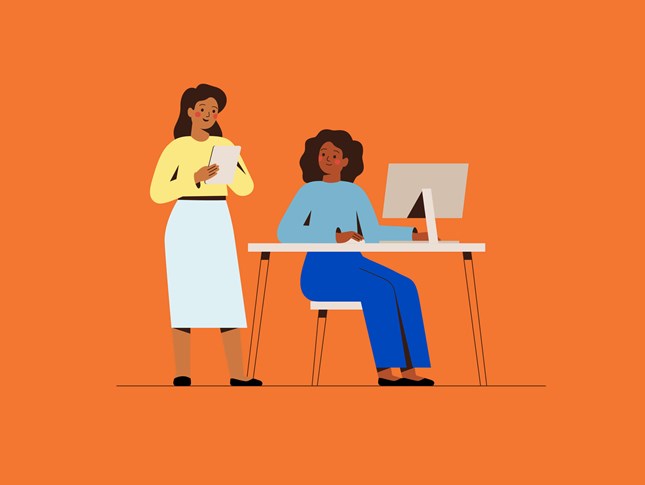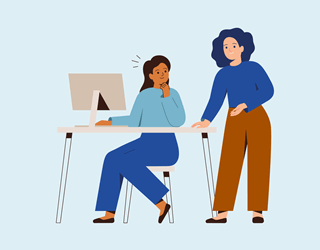5 tips for active listening: try BUILD
Active listening is an important skill for school leaders to develop to help build relationships with their staff. Here are some key points to remember when having conversations with your colleagues.
Articles / 2 mins read

Great school leaders are often great listeners. Actively listening to colleagues builds trust, strengthens relationships and encourages collaboration. It is a vital skill in life and the workplace, having a profound impact on the effectiveness of our work and our relationships with our colleagues.
Educator and author, Stephen Covey taught that most people do not listen with the intent to understand. But that they listen with the intent to reply. He also argues that the most effective communicators are great listeners.
It’s important not to forget that like any skill, active listening takes time and practice. Don’t put pressure on yourself to be a perfect all the time. Taking small steps and making gradual changes to the way you listen will be easier to achieve and much more likely to stick.
Author and speaker, Jacob Morgan suggests practicing active listening by remembering the acronym BUILD. Next time you engage in a conversation with a colleague at school, try asking yourself these questions:
B: Body Language
How are you standing or positioning your body? The way you hold yourself can show if you are focused on the person you are talking to and are receptive to their message.
U: Understanding
Are you really listening to what is being said? It is easy to stand and nod your head and look like you are listening, then come away from the conversation realising you don’t remember it fully.
I: Interrupting
Are you interrupting? Interrupting someone can be frustrating for them and make it seem like what you have to say is more important than what the other person is saying.
L: Look at them
Are you looking in their direction? Looking at someone (rather than finishing what you’re writing or checking your phone!) shows you are paying attention and value what they are saying.
D: Don’t judge
Are you being open-minded? It can help you put yourself in the other person’s shoes. Going into a conversation with a judging mindset can destroy the potential for progress or growth. Instead, practice empathy.
Take a look at this quick 5-minute video to learn more about BUILD.
Sources
- 5 easy ways to practice active listening by Jacob Morgan (BUILD):
https://jacobm.medium.com/5-ways-to-practice-active-listening-924b58746494 - The 7 Habits of Highly Effective People, Stephen Covey, 1989.
Download poster
School leaders’ support
We offer fully-funded professional supervision which gives you a safe and confidential space to talk about, and process what is going on for you at work.
Our service provides emotional and practical support that helps you and your colleagues thrive at work.

Fully funded professional supervision for school and FE college leaders in England and Wales.





















